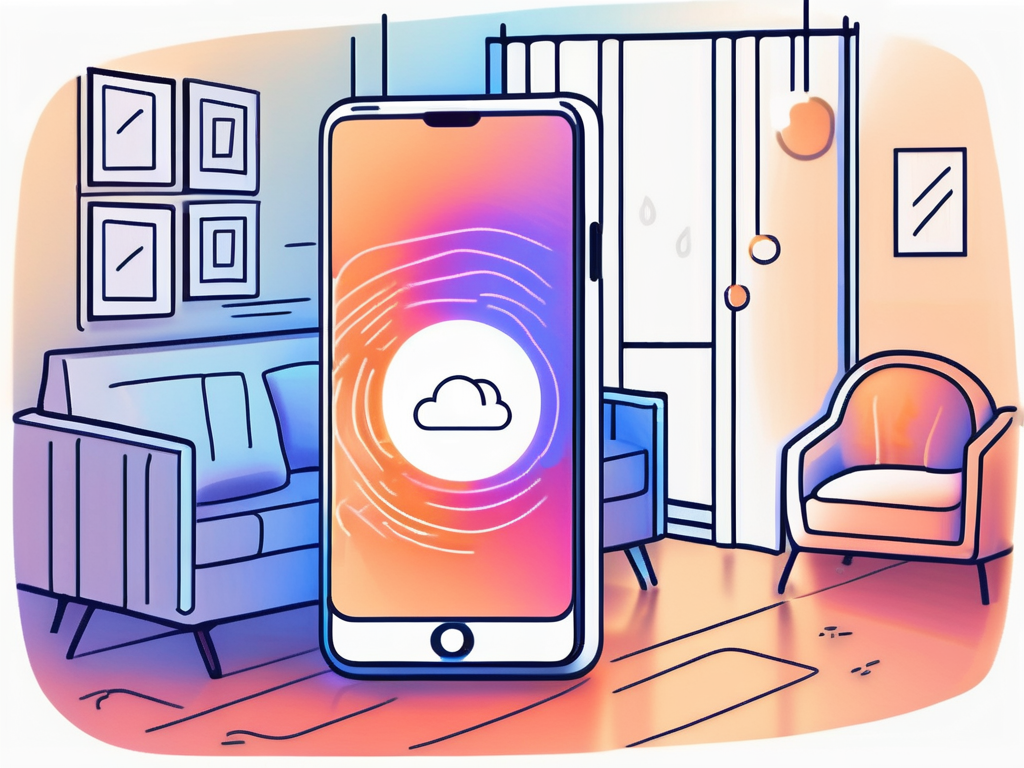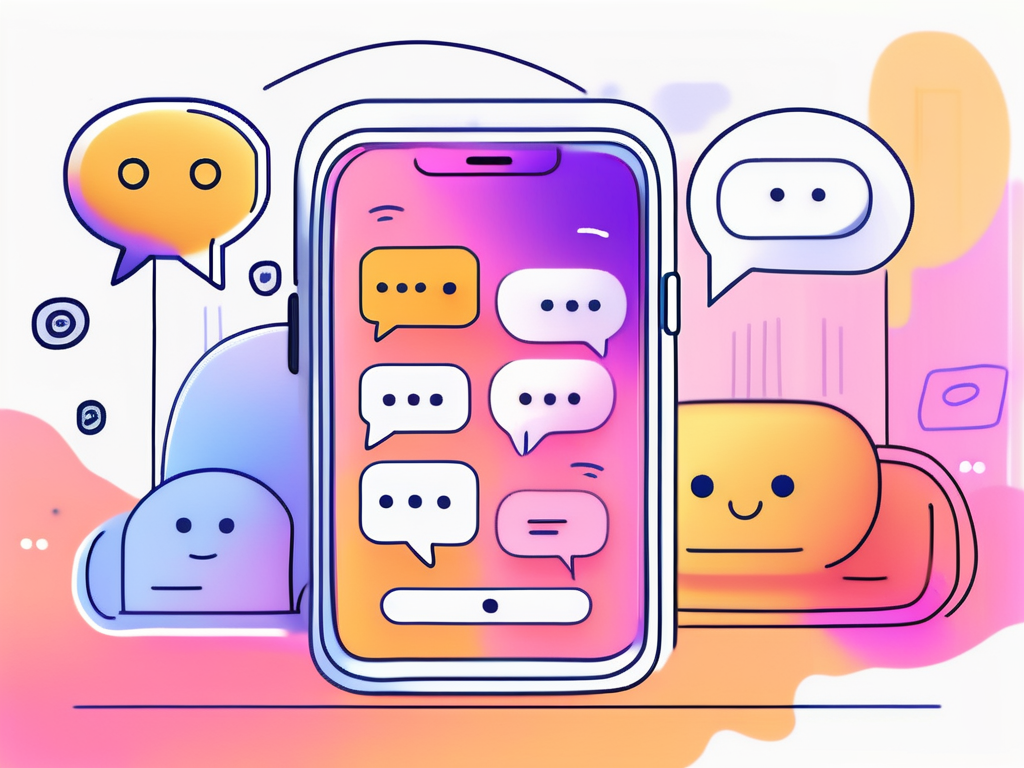
What to do if you were left on read
In today's digital age, communication has evolved with the rise of instant messaging applications. One of the common experiences individuals encounter in this realm is being 'left on read'. This can evoke various feelings, from confusion to frustration. In this article, we will explore the concept, evaluate the situation, and discuss ways to react and communicate effectively in the future.
Understanding the Concept of Being 'Left on Read'
The phrase 'left on read' refers to the situation where someone has seen your message but chooses not to respond. Most messaging platforms, like WhatsApp, Facebook Messenger, and iMessage, indicate when a message has been read, which adds another layer to the emotional experience of communication.

Often, this phenomenon can make individuals feel dismissed or undervalued. Understanding why someone might leave you on read can help in managing your expectations and feelings. It's essential to recognize that not all interactions are a reflection of your worth or the significance of the relationship.
The Psychology Behind Texting and Instant Messaging
Texting has changed the way we interact with others. With instant messaging, responses can be immediate, creating a sense of urgency. When messages go unanswered, this breaks the rhythm of communication, leading to feelings of rejection or anxiety.
Psychological factors, including attachment styles and social anxiety, significantly influence how individuals engage in texting. For example, if someone has an anxious attachment style, they might be more prone to interpret being left on read as a personal affront. Understanding these underlying psychological mechanisms can provide clarity in navigating these emotional waters. Furthermore, the context of the conversation can also play a crucial role; a light-hearted chat may not carry the same weight as a serious discussion, and thus, the impact of being left on read can vary significantly based on the situation.
The Emotional Impact of Being Ignored
The emotional toll of being left on read can vary from mild irritation to significant distress. Feelings of rejection and doubt often emerge, prompting an internal dialogue that questions the relationship's value and the person's feelings towards you.
Moreover, in an era where digital communication can dominate relationships, the risk of miscommunication and misunderstanding grows. Recognizing your emotional responses and developing strategies to cope can help mitigate the impact of such experiences. Engaging in self-reflection can be beneficial; for instance, considering whether the other person might be preoccupied or dealing with their own issues can provide a more balanced perspective. Additionally, fostering open lines of communication about texting habits and preferences with friends or partners can help set realistic expectations and reduce the likelihood of feeling ignored in the future. This proactive approach can lead to healthier interactions and a deeper understanding of each other's communication styles.
Evaluating the Situation
Before diving into reactions, it's beneficial to evaluate the situation thoughtfully. This involves assessing the relationship and considering the context of the communication.

Assessing the Relationship
Your relationship with the person who left you on read plays a crucial role. If the relationship is close, it's worth reflecting on any recent dynamics that might have influenced their behavior. On the other hand, if it's a casual acquaintance, their lack of response may not hold as much weight.
It can be helpful to consider past interactions. Have they previously responded promptly, or is this behavior unusual? This evaluation can provide perspective and alleviate some negative feelings associated with being ignored. Think about the frequency of your conversations and the topics you usually discuss. A pattern of open communication might suggest that their silence is an anomaly, prompting you to reach out again, while a history of sporadic exchanges might indicate that their lack of response is more typical.
Considering the Context
The context surrounding the conversation is essential for understanding why someone might leave you on read. Are they going through a stressful time? Do they have commitments that limit their ability to respond quickly? Being aware of these external factors can help build empathy and avoidance of personalizing the situation.
Additionally, consider the content of your last message. Was it engaging or perhaps weighty? Sometimes, people leave messages unread because they need time to process or craft an appropriate response. Reflecting on the tone and complexity of your message can provide insight into their potential reaction. If your message was particularly deep or required thoughtful engagement, they might be taking their time to respond in a way that feels right to them. Moreover, external distractions, such as work obligations or family matters, can also play a significant role in their delayed response, underscoring the importance of patience and understanding in these situations.
How to React When You're Left on Read
How you choose to react can influence your emotional well-being and future interactions. Strategies exist for both immediate responses and long-term coping mechanisms.
Immediate Response Strategies
In the moment of feeling ignored, it's essential to practice self-soothing techniques. Take a break, engage in a pleasurable activity, or talk to a trusted friend about your feelings. Allowing yourself to express frustration can be cathartic and helps restore emotional equilibrium. You might find that immersing yourself in a favorite hobby, such as painting, reading, or even going for a walk, can help redirect your focus and lift your spirits. These activities not only distract you from the discomfort but also provide a sense of accomplishment and joy.
Avoid sending a barrage of follow-up messages. This usually leads to further discomfort or miscommunication. Give the other person time to respond, as they may just need a moment to gather their thoughts. Remember, everyone has their own pace when it comes to communication, and what feels urgent to you might not feel the same to them. Instead of fixating on the lack of response, consider reaching out to someone else who might be available to chat, thus shifting your attention and reducing the emotional weight of the situation.
Long-Term Coping Mechanisms
Long-term coping requires developing healthier approaches to digital communication. One effective strategy is to cultivate a mindset that reduces the importance of immediate responses. This fosters a more resilient attitude toward potential communication lags. By reframing your thoughts, you can remind yourself that a delayed reply does not diminish your worth or the value of your relationship with the other person. It can be helpful to establish personal boundaries around your expectations for communication, allowing you to maintain a sense of peace regardless of others’ responsiveness.
Additionally, exploring mindfulness practices can help ground your emotions and enhance your self-worth independent of others' responses. Techniques such as meditation, journaling, or even deep-breathing exercises can create a buffer against the emotional turmoil that often accompanies being left on read. Building personal resilience helps mitigate the sting associated with occasional neglect in digital communications. Engaging in regular self-reflection can also empower you to understand your emotional triggers better, allowing you to respond with greater clarity and calmness in future interactions. Over time, these practices can transform your relationship with digital communication, making it a source of connection rather than anxiety.
Communication Techniques to Prevent Being Left on Read
While you can't control others’ actions, you can improve how you communicate to reduce the likelihood of being left on read. Adopting effective texting etiquette and setting clear expectations plays a pivotal role here.

Effective Texting Etiquette
Being concise and clear in your messages is fundamental. Long-winded texts may overwhelm the recipient, leading them to postpone their response. Aim for clear communication to create an engaging dialogue.
Additionally, timing matters! Avoid messaging too frequently, especially if the conversation has slowed down. Allowing natural pauses can lead to more meaningful exchanges and keep the conversation enjoyable.
Setting Expectations in Digital Communication
Establishing communication norms early on can help both parties manage expectations effectively. For example, discussing how soon you both intend to respond can alleviate anxiety about perceived neglect.
Being transparent with your own texting habits can also be beneficial. For instance, if you’re often busy and may not reply instantly, communicate that to avoid misunderstandings.
Moving Forward After Being Left on Read
Despite the discomfort of being left on read, it is possible to move forward constructively. Focusing on building resilience in your digital interactions and discerning when to let go are vital steps.
Building Resilience in Digital Communication
Developing resilience means recognizing that digital communication is not a perfect reflection of your relationships. It can fluctuate based on various factors, including external pressures on the other person. Strengthening your relationship with yourself will buffer against the emotional downsides of these experiences.
Consider broadening your support system. Engaging with a variety of social connections can lessen the emotional weight placed on any particular relationship.
Knowing When to Let Go
Ultimately, understanding when to let go is crucial for your emotional health. If a pattern of being left on read emerges, it may indicate a need to reconsider the importance of that relationship in your life.
Letting go doesn't have to mean cutting ties entirely; it can also involve redefining your expectations or the role that relationship plays in your life. By prioritizing connections that nourish you, you foster a healthier digital communication environment.
In conclusion, being left on read is a common struggle in our digital interactions. By understanding the psychology behind it, evaluating situations thoughtfully, and employing effective communication strategies, you can navigate these experiences with grace and resilience.
Feeling stuck after being left on read? Don't let it dampen your confidence! TextWise AI is here to help you craft the perfect response that will keep the conversation flowing with your crush. With personalized messages, witty replies, and expert flirting tips, our app ensures you'll never be at a loss for words. Whether you're looking for a clever icebreaker or a charming follow-up, TextWise AI has got your back. Download the app now and transform your digital communication into an art form. Say goodbye to the read receipt blues and hello to captivating chats with TextWise AI!

